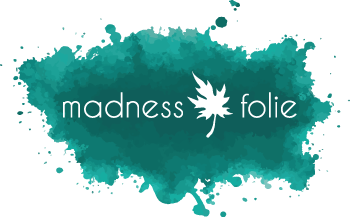The Toronto Scene Unit
 Takeaways
Takeaways
- Understand that mad activism is a social and cultural movement which fosters positive individual and community identity
- Appreciate that advocacy and activism function differently to promote social change
 Component
Component
This component is a fifteen-minute video featuring oral history interviews shot in 2009. Secondary student Lily Ross-Millard used the footage to create a strong statement about the importance of activism in mental health.
 Evaluating the Components
Evaluating the Components
- Component Evaluation: Visualizing Ideas – 30 minutes
 Learning Lens
Learning Lens
Community engagement works against the social isolation and low self-image that often accompanies a mental health diagnosis. This 15-minute video uses interview footage of Toronto activists to tell the story of the psychiatric survivor movement in the city, and how it took shape over the 1980s and beyond. Key movement figures, including Pat Capponi, David Reville, Mel Starkman, Geoffrey Reaume, Louise Tam and Don Weitz, speak powerfully about how the personal met the political in their lives.
Students can use this video as a window to understanding the difference between advocacy and activism. Advocacy is about working within an existing political, economic or social institution or system to bring about change. Activism is about working outside existing institutions and systems to impede, promote or direct change. In the film, both Pat Capponi and David Reville describe advocacy that they have undertaken in the legal and political systems, while Don Weitz talks about creating independent mad protest organization to actively fight for change outside existing power structures. But the boundaries between activism and advocacy are often blurred in interesting ways.
 Component in Context
Component in Context
Mad Activism in Toronto began in the 1970s. Inspired by a visit to the MPA in Vancouver, Don Weitz established the Ontario Mental Patients Association (soon renamed On Our Own) in 1977. On Our Own would survive 20 years, operating a drop-in and a store called The Mad Market, and stimulating the publication of the well-known anti-psychiatry magazine called Phoenix Rising: the Voice of the Psychiatrized. Active in Parkdale in the same period with PARC and the publication of The Cuckoo’s Nest, writer/ activist Pat Capponi then moved east to the Gerstein Centre, where she led the Leadership Facilitation Program, an innovative training and empowerment program for people with mental health histories.
In the early 1990s a grant from a new Ministry of Health program called the Consumer Survivor Development Initiative funded the short-lived Ontario Psychiatric Survivors Alliance (OPSA) and helped establish several new activist and advocacy organizations in the city: Toronto Psychiatric Survivors, The Consumer Survivor Information Resource Centre, Job Quest, Breakaway Survivors and Friends and Advocates. OPSA also inspired the birth of survivor-run organizations all over the province. Some important Toronto survivor employment initiatives date from this period including the Consumer Survivor Business Council (now Working for Change), AWAY Express and Fresh Start Cleaning and Maintenance. In 1993 the West End Survivors organized the first Psychiatric Survivor Pride Day, which continued as a yearly event. More recently, The Mad Students Society which began in Toronto has grown to provide peer support to students all over North America, maintaining an ongoing critique of the post-secondary school system as well as mad stereotyping.


 Français
Français